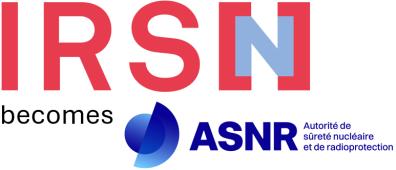R2CA project
The Reduction of Radiological Consequences of design basis and extension Accidents (R2CA) is an EU H2020 project launched in September 2019. It will run for four years and is coordinated by IRSN. The project, which is mainly funded by the European Commission, brings together seventeen different organizations based in eleven countries.
In most current nuclear safety studies, the radiological consequences of a Loss-of-Coolant Accident (LOCA) or of a Steam Generator Tube Rupture (SGTR) accident occurring in a nuclear reactor are assessed based on 'conservative' scenarios and assumptions, which differ from one country to another.
The aim of the R2CA project is to develop new calculation methodologies and updated computer codes (integrating the evaluation of uncertainty) in order to produce more realistic evaluations of radioactive releases resulting from such accidents. These new evaluations should serve to improve accident management and propose new reactor systems instrumentation, thereby improving facility safety.
The new design methods developed will be harmonized and tested on different types of Generation II and III reactor [Pressurized Water Reactors (PWR), Boiling Water Reactors (BWR) and VVER reactors, many of which are in service in Eastern Europe, and the EPR]. In addition to acting as coordinator for the project, two IRSN departments [the Severe Accident Department (SAG) and the Incident and Accident Control Department (SEMIA)] will work on developing new models and calculation methodologies for evaluating the source term during LOCAs and improving the iodine release evaluation during a SGTR sequences within design basis and design extension conditions.
Project structure
The project is divided into six Work Packages (WPs), the first of which (WP1) covers scientific coordination of the project.
WP2: Methodology for release evaluation (coordinated by: TRACTEBEL, Belgium).
This Work Package will include a review of the state-of-knowledge, including a review of available methodologies for release evaluation of computer codes and of available experimental data. The advantages of new codes and models developed in the course of the project relative to evaluating releases in the scenarios under consideration will be also assessed by comparing the software codes used to model accident sequences at the start and at the end of the project. Finally uncertainties on best estimate evaluations will also be quantified and the different methodologies for release evaluation harmonized.
WP3: Loss-Of-Coolant Accident (coordinated by: IRSN, France).
This Work Package aims to improve the different simulation tools and models used to analyse the LOCA transients and to evaluate the corresponding releases. It will focus on modeling fuel rod cladding failure and calculating the quantity of failed cladding in the reactor core, evaluating releases of fission products into the RCS and their transport to the environment.
WP4: Steam Generator Tube Rupture (coordinated by: EK, Hungary).
In parallel to WP3, this Work Package will focus on the models and simulation tools used to analyze the SGTR transients in the event of failed fuel rods and evaluate the corresponding releases. It will focus on modeling the iodine peak activity released from failed fuel rods into the RCS, on the behavior of iodine in the degraded SG and its release into the environment, and on secondary hydriding phenomena of failed rod cladding and its potential embrittlement after water ingress via the primary defect.
WP5: Innovation (coordinated by: EDF, France).
This Work Package will focus on the development of innovative accident management technology and methods and on studying the behavior of new, advenced technology fuel, so-called Accident Tolerant Fuel with a view to reducing the radiological consequences of the accident scenarios under consideration. This will entail studies on advanced instrumentation technology designed to improve our understanding of the reactor state and the operator's management of the subsequent accident, innovative methods and aids for the diagnosis and prognosis of accidents based on Artificial Intelligence and, last, studies on advanced fuel technology designed for enhanced behavior in LOCA accident scenarios.
WP6: Communication, outreach and training (coordinated by: ENEA, Italy).
This Work Package covers internal and external communication regarding project results, as well as organizing international workshops for the wider scientific community, coordinating a group of end users, organizing knowledge sharing between the different organizations, and training through research for young researchers and students, primarily through thesis work.
